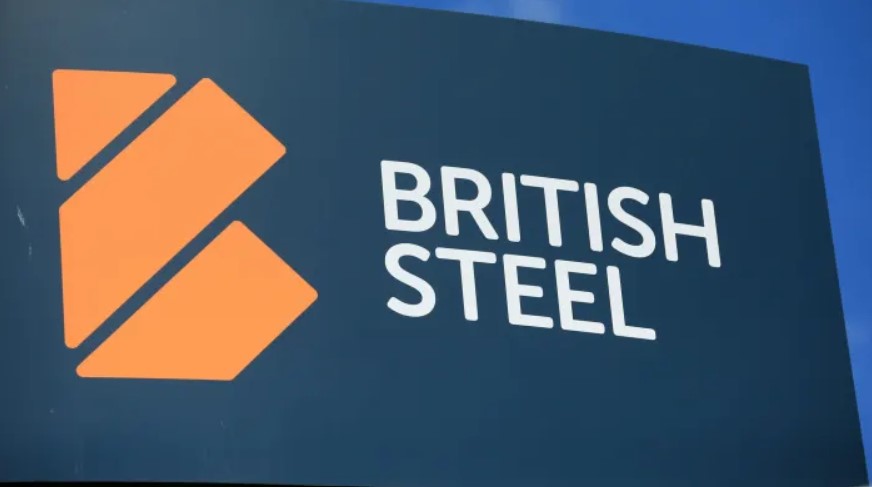- Write by:
-
Sunday, January 26, 2020 - 3:03:00 PM
-
569 Visit
-
Print

Mining News Pro - China’s Jingye considers building a new metal recycling furnace
According to Mining News Pro - British Steel’s Chinese buyer is considering building a new metals recycling furnace on Teesside, a move which would bring steelmaking back to an area that has suffered decades of industrial decline.
Jingye hammered out an agreement with trade unions on new employment terms this week as part of its planned turnround of the failed manufacturer, which will involve £1.2bn worth of investments but also up to 500 job losses — roughly 10 per cent of the workforce.
The Chinese conglomerate hopes to conclude its takeover of the UK’s second-largest steelmaker by the end of next month. It is looking at the possible installation of an electric arc furnace at one of the company’s smaller factories in Teesside, north-east England, according to people aware of the plans.
If the proposal goes ahead, it would herald the return of crude metal production to a region with a proud industrial heritage, but whose 170-year history of iron and steelmaking ended when the nearby Redcar blast furnace plant shut in 2015.
The closure caused 3,000 job losses and left behind vast tracts of despoiled land at what has been described as the UK’s biggest regeneration site.
Securing the future of British Steel is a priority for the UK government, in line with prime minister Boris Johnson’s pledge to “level up” regional economies. Many former Labour heartlands with manufacturing legacies, including Redcar, turned Conservative in last year’s general election for the first time in decades.
The Teesside beam mill processes basic metal, supplied by British Steel’s main plant in Scunthorpe, into products for the construction industry and employs 400 people. An EAF would make it capable of producing its own primary material.
Unlike blast furnaces that produce virgin steel from raw materials, EAFs melt scrap steel and are smaller, less costly to build and more flexible. They also emit less carbon dioxide, but consume huge amounts of electricity.
“This should reduce costs and maybe increase competitiveness,” said one person familiar with the Teesside factory.
However the new furnace would “definitely not” be intended to replace Scunthorpe’s blast furnaces, said one of the people aware of Jingye’s thinking. Jingye declined to comment.
The Community trade union this week said that Jingye’s investment plans would be “transformational” and secure British Steel’s long-term prospects.
Since it collapsed into insolvency in May, British Steel has continued to operate under the Official Receiver, an officer of the UK Insolvency Service, with funding through a taxpayer-guaranteed indemnity estimated to have cost tens of millions of pounds.
Jingye’s accord with unions this week marked an important step in its rescue. The deal includes a retention bonus paid to workers in their first year under Chinese ownership and no changes to shift premiums or take home pay. Alasdair McDiarmid, operations director at Community, said it was a “better deal for employees than what was otherwise on the table”.
An unsuccessful bidder for British Steel, Sanjeev Gupta’s Liberty House, wanted to gradually shift Scunthorpe away from blast furnace production to electric arcs, but the likely job losses as a result were a factor in the offer being turned down.
Ben Houchen, the Tees Valley Tory mayor, recently promised to bring steelmaking back to Teesside when launching his campaign for re-election. Earlier this month the government committed £71m, bringing to £208m so far the public sector support to turn the Redcar site into a hub for new industrial users.
Short Link:
https://www.miningnews.ir/En/News/478170

China’s CMOC Group Ltd. is being accused by a top US official of using “predatory” tactics to depress prices of a key ...

Democratic Republic of Congo’s government has lifted a suspension order on a Congolese copper and cobalt operation ...

Copper climbed above $10,000 a ton as predictions for tighter global supplies and rising consumption in electric ...

Iron ore futures fell to their lowest in more than two weeks, pressured by an inventory accumulation at Chinese ports ...

Japanese steelmakers have raised concerns with Australian authorities that BHP Group could become too dominant in the ...

Japanese steelmakers have raised concerns with Australian authorities that BHP Group could become too dominant in the ...

Indonesia’s nickel reserves are sufficient for expanded processing operations, an investment ministry official said on ...

China issued draft rules on Wednesday to regulate its lithium battery market, after rapid expansion in the sector hit ...

Imports of iron ore by China, the world’s biggest buyer, in 2024 are expected to be around 1.17 to 1.18 billion metric ...
No comments have been posted yet ...